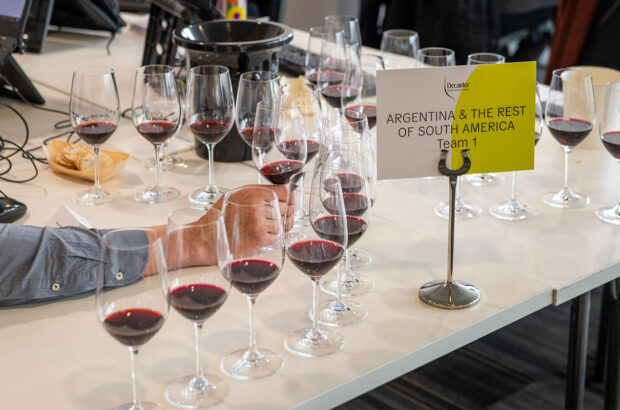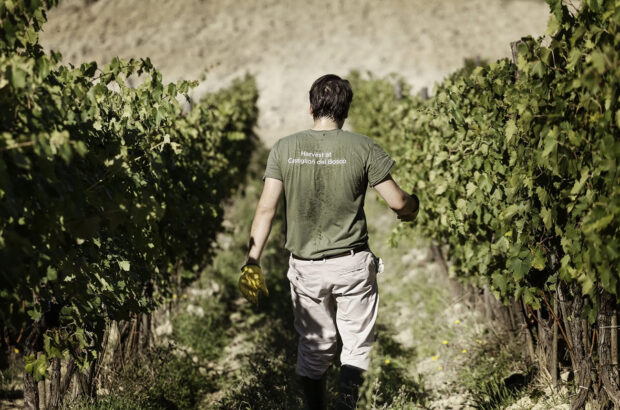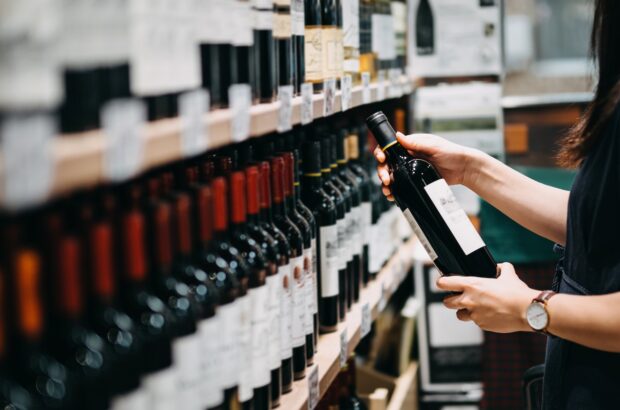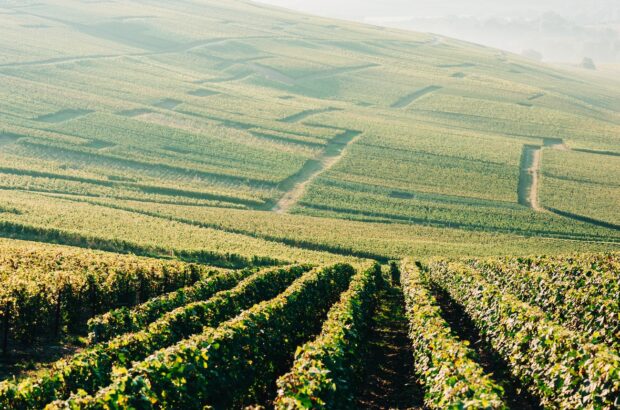Read the second chapter of Andrew Jefford’s four-part August wine series ... for absolute beginners. This week, it's the guerrilla guide to making wine.
The Guerrilla Guide to Wine: Making wine
Guerrilla (noun) = member of a small independent group taking part in irregular fighting, typically against larger regular forces
Guerrilla (adjective) = referring to actions or activities performed in an impromptu way, often without authorisation
1: Vineyards aren’t natural
Grape vines were guerrillas themselves once: survival by cunning, not force. They evolved in the woods and climbed trees. To reproduce, they grew grapes small enough for seed-excreting birds to gobble up. Vineyards, by contrast, are a human creation: monocultures of stunted vines, bred for their fruit, strapped to poles, shorn and treated with chemicals (even the organic ones) to keep disease at bay. It has a happy outcome, but don’t let the priests tell you it’s part of the natural world. When humans disappear, the vineyards will follow.
2: Weather happens
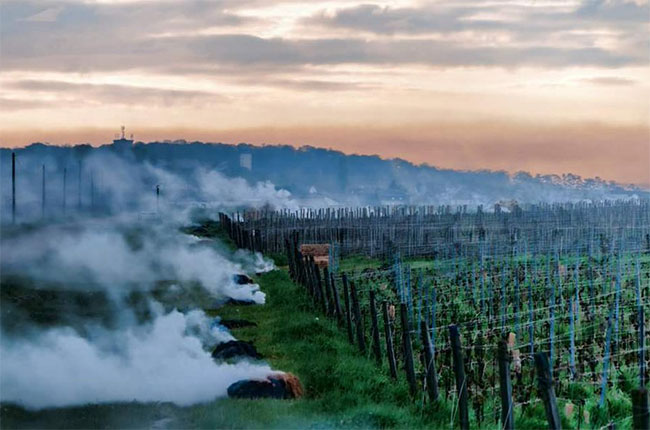
The morning after frost in Burgundy, April 2016. Fires have been lit around vineyards in an effort to keep buds warm. Credit: Frederic Billet / @fredericbillet1 / Twitter
Nothing is more important for wine flavour than what happens to a vine in the seven or eight months between waking up in spring and going to sleep in autumn. Varieties are bred to suit a climate (but that’s now on the move), and the quality of each year’s wine (a vintage) depends on how good or how bad the weather was during those seven or eight months. Warm vintages are always best in cool places, but cool vintages can sometimes be best in warm places. Guerrilla wine drinkers need to remember one rule: the cooler the place a wine comes from, the more different one vintage is likely to be from another (because there’s less leeway in the cycle). If you want to become a wine priest one day, though, here’s another rule: the longer you’re going to keep a wine, the more vintages matter. Don’t keep the bad ones.
3: Picking – game over
Timing is vital in guerrilla warfare: that’s how you achieve surprise. Harvest timing is vital, too, in the search for winemaking perfection – though it’s the weather that springs the surprises. Wine grapes have two sorts of ripeness: sugar ripeness (to make enough alcohol) and flavour ripeness (for resonance and vinosity). Sometimes they go together; sometimes they get out of synch. The perfect moment to pick wine grapes is probably the earliest point of full flavour ripeness, assuming that sugar ripeness isn’t lagging behind and hasn’t got too far ahead. But when is that? And what do you do if it’s all going wrong? Pity the poor winemaker. (Even if he or she gets it right, the priests never stop squabbling over ripeness: some want more, others want less.)
4: Body handling

Freshly picked Pinot Noir grapes at Mumm Napa Valley in August 2017. Credit: Bob McClenahan / Napa Valley vintners.
Alive or dead, you want your body handled gently. So do grapes. Though we’ve only just realised it: that’s a modern winemaking obsession. Nothing gives away a cheap wine more quickly than rough handling; gentle handling costs money. That, though, is how you can enjoy a silky ride (from slender white to richly textured red); and that, too, is how you can enjoy purity, which means seeing a wine’s qualities most clearly. It’s all grape massage now.
5: Adding stuff
You only need add one thing to wine: a little sulphur, which cleans and preserves. If you don’t (and there’s a new priestly caste which insists you don’t), you risk making defective wines, or wines which all smell like cider. Even if you avoid those traps, a zero sulphur wine will still need to be drunk swiftly. You don’t have to add yeasts (they’re in the air in most wineries), but winemaking is more predictable if you do. Every other additive (and a couple of hundred are allowed) is an admission of defeat – defeat by the season, by the place, by vine-tending or wine-making. Sometimes additives are necessary, but their iberal use is the principal cause of wines tasting sharp, hard, boring, industrial or chemical. The label is no help: additives don’t have to be disclosed (that war is still to be won).
6: Calm down

Vats forming part of the new winemaking facilities and cellar at Pichon Comtesse de Lalande, installed for the 2013 vintage.
New wine is unruly and indigestible: it needs to calm down. Where you put it to do that is another key element in wine flavour. For wines with youthful, fresh appeal, stainless steel tanks are best: maximum zip. To give wine a little soft roundness without the taste of wood, chose large tuns of old oak. Small oak barrels will calm even the grandest, most intense wine over a year or two; but if they’re made of new wood, you’’ll probably smell and taste the wood as well as the wine. Once, winemakers used clay jars and amphorae to calm wine – and they’re doing so again. Purity and neutrality is the aim (as it is with less fashionable cement tanks).
7: The bung
How should bottles be stoppered? Bad corks (affected by a substance called TCA) murder wines. Any wine destined for swift drinking, or those for whom fruit preservation is paramount, is best under screwcap: the guerrilla closure of choice, since you can forget the corkscrew. Glass ‘corks’ are a sexy short-term alternative. Grand white wines destined to mature in bottle are best under the cleaned cork closures called Diam, while great red wines are best under high-quality natural cork. The priests all disagree, though – sometimes violently. (I’m outta here.)
8: Just add time

The Mouton Rothschild barrel room.
Or not. Mostly not. Almost all wine (happily for guerrilla drinkers) is ready to drink tonight. The best wines can age for longer, though they may not change much; a few (less than one per cent of the total) actually need a decade or more to show at their best, and will change almost miraculously. Which ones? The ones you can’t afford. Wine ageing is a very priestly topic, and there’s also a kind of machismo among wine producers about ageing their wines: “everyone drinks my wine too soon”. OK for them: they have ample stocks, beautifully cellared. The guerrilla reality, though, is that a lot of wine is assassinated by being kept too long in the wrong conditions (see below). So forget time, at least until you’re rich: get stuck in while it’s young, juicy, fresh and full of life.
9: Wine in my flat
Guerrilla encampments, I’m sorry to say, are entirely unsuitable for storing wine, which loves damp, cold, dark places like caves or dungeons or wells. If you want to store wine and can’t afford a castle with a dungeon (or a beautiful old house with an underground cellar), buy a wine fridge. Otherwise: don’t.
10: The healthy guerrilla

Tasters enjoy discovering wines at one of Decanter’s tasting events in central London. Credit: Cath Lowe / Decanter.
High priests often talk about wine as if it contained no alcohol at all, but guerrilla drinkers love wine for its alcohol as well as its scents and flavours: that’s what cheers the heart and lifts the soul around the camp fire at night. You just have to find the right dose for your body (smaller bodies need less), your age (older bodies need less) and your state of mind (when the going gets tough, the tough drink less). Sulphur and other additives are much less harmful for your health, remember, than ingesting the wrong dose of alcohol.
A fully revised and updated edition of Andrew Jefford’s Wine Course is now available in English (Ryland, Peters & Small) and in French (as Le Grand Livre du Vin, Eyrolles)
More Andrew Jefford columns on Decanter.com:

Jefford: The guerrilla guide to wine – Part one
Make your own mind up...

Jefford on Monday: Profiling prince charming
Andrew Jefford explores Vacqueyras...

Jefford on Monday: Europe’s screwcap kings
Andrew Jefford visits Franconia...

Jefford on Monday: Desperately seeking Silvaner
Andrew Jefford hunts down wines to try...


